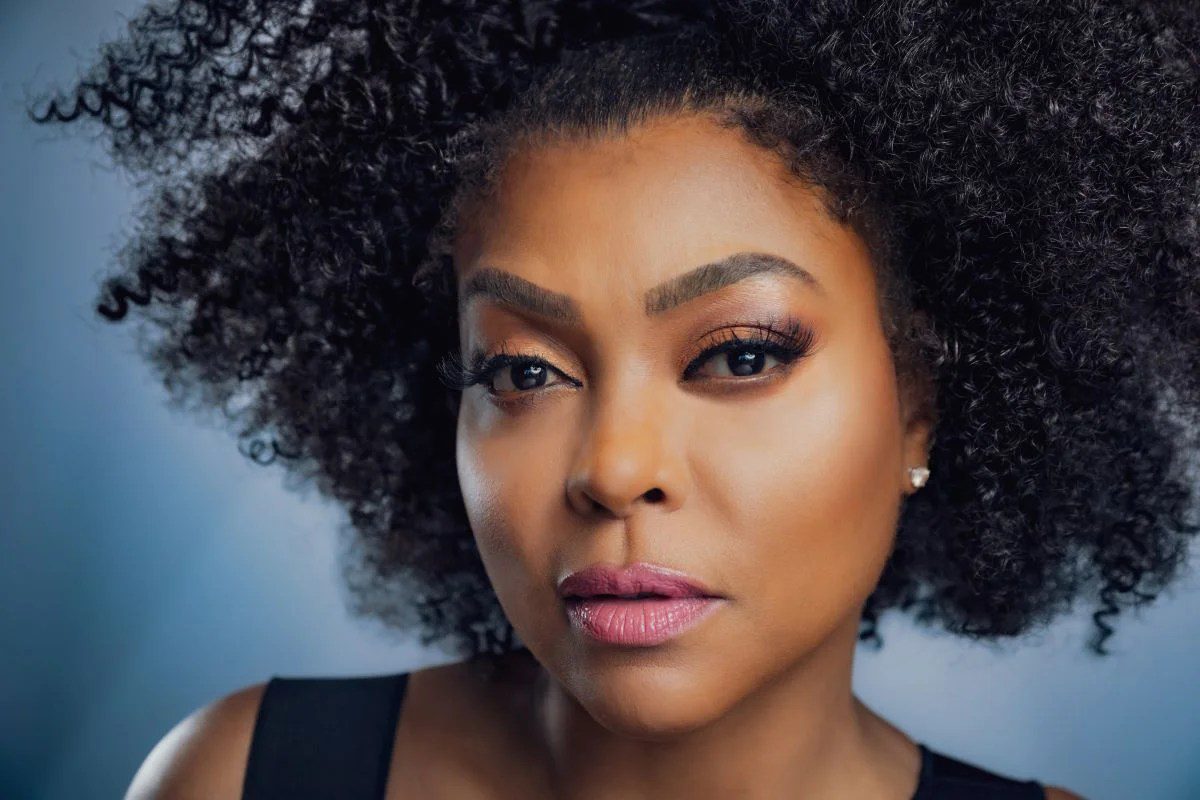Did you know that the “P” in Taraji P. Henson stands for Prolific? Just kidding. It actually stands for Penda, which in Swahili means “hope/love.”
But prolific might actually be too small a word to contain the wealth of Henson’s ambitious, wide-ranging career: Oscar-nominated blockbusters (“Hidden Figures,” “The Curious Case of Benjamin Button,” the latter earning her an Academy Award nod), must-see TV (Fox’s “Empire,” CBS’ “Person of Interest”), a primetime musical (NBC’s “Annie Live!”) and movies known for their eminent re-watchability (“Baby Boy,” “Hustle & Flow”).
Now, as the tantalizing, tender-hearted Southern belle Shug Avery in Blitz Bazawule’s musical adaptation of “The Color Purple,” Henson is capping a banner year in which she could have become an EGOT recipient with her 2023 work alone: her Emmy-nominated performance as Quinta Brunson’s cash-strapped mom on “Abbott Elementary”; being a principal on the “Purple” soundtrack; and making her first foray as a Broadway producer with the critically acclaimed “Jaja’s African Hair Braiding.” B
ut when it was suggested that she’s versatile enough to have played any one of the principal roles in “Purple,” she seemed genuinely taken aback.
“My God, you’re gonna make me cry already!” Henson said with a laugh. “Shug was the role that picked me, actually. I was tapped to play her on Broadway years ago, and I turned it down because I just knew I wasn’t ready. I knew my voice wouldn’t withstand singing like that eight shows a week.
“Shug is the only one in the movie who sings gospel, jazz and the blues, so I was stretched beyond my imagination,” she continued. “The scariest song for me was not ‘Push Da Button,’ because I am a belter. It was ‘Miss Celie’s Blues (Sister)’ that scared me because it’s jazz.”
The role of Shug has become something of a boon for Black women over nearly 40 years, notably played in the 1985 Steven Spielberg film by Margaret Avery. That adaptation of “The Color Purple” additionally attracted some of our finest Black performers, including Whoopi Goldberg and a first-time film actor named … Oprah Winfrey. (Both Spielberg and Winfrey are producers on this new film.)
“I was nervous as hell,” Henson said. “So many incredible women have played Shug. I mean, Jennifer Hudson [who played the role on Broadway], like, come on! But like I said, I love a good challenge. I still get nervous, which means I’m alive, and I use those nerves.”
Theater was Henson’s training ground, particularly musical theater (she even went to Hong Kong with “Dreamgirls”), and she’s surrounded by vets in “The Color Purple.” Every principal actor has a notable stage background, with costars Fantasia Barrino and Danielle Brooks having done “Purple” in the original 2005 production and the 2015 revival, respectively.
“Theater actors are stronger actors in my opinion, because there’s an element of preparedness we have when we come on set,” Henson said. “And that’s because of the training. When we do plays, you start from the beginning of the story and you go all the way through until the end. We’ve trained our bodies to know where we are within a story.”


This revisiting of “Purple” also seems to remedy what some characterized as timidity in the Spielberg version regarding the queer bond developed by Henson’s Shug and Barrino’s Celie.
“We wanted to make it about pure love,” Henson said. “That’s literally what it’s about. It has nothing to do with sex, and who’s doing what with whom and all of that. It’s literally about two human beings who really see each other in a way that no other human being has ever seen them. For the first time, Shug understands what love truly is. We see humans, regardless of gender, really fall for each other. Because they feel seen, and all humans need to feel seen.”
Still, Henson was initially concerned about whether a new version was a good idea. Comparing “The Color Purple” to the Bard, she said, “It’s Shakespeare. When I first got the call from my manager, I was like, ‘Who the hell are we to do a remake? That’s dumb!’” She laughed heartily. “But we have this Black man [Bazawule] telling this story for the first time on screen, so I knew it would look different. I knew it would be culturally competent, I knew it would be compassionate because we are owning this narrative. Black people go through trauma, but what we do is we fight to find that joy. We sing, we dance, we celebrate, we go to church. That’s who we are.”


Henson has already had the Oscar experience from both sides of the stage, as a nominee for 2008’s “Benjamin Button” and also as a performer joining Three 6 Mafia onstage for their Oscar-winning “Hustle & Flow“ track “It’s Hard Out Here for a Pimp.” So which is a more nerve-wracking station from her point of view?
“I had kind of a different experience [on stage] because my father had just passed, like, three weeks before,” Henson said mournfully of her “Hustle & Flow” experience. “So, I was numb and I was compartmentalizing my pain to get through. I kind of slipped into a zone and looked over everybody’s head to get through it, because I hadn’t even grieved my father’s death yet. But yeah, it’s more nerve-wracking [to be a nominee] because you get the jitters. You go on the stage knocking it out the park and then you go celebrate. It’s over, right? But as a nominee, you have to sit in that chair and wait until your category and hold your breath and see if they’re going to call your name!”
This story first appeared in the Awards Preview issue of TheWrap’s awards magazine. Read more from the Awards Preview issue here.



